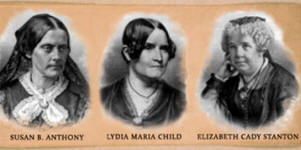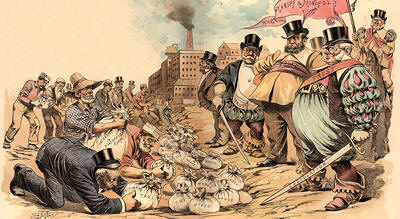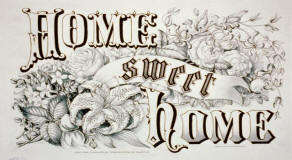|
|
American Political Thought 46.307.201 |
|
|
This course utilizes documentary resources to survey major milestones in American political thought from the Founding Era to the present. During the first half of the term, we will study selections from leading contributors to social, economic, and political discourse over the past two centuries. During the second half, students will use what they have learned to explore how eighteenth and nineteenth-century approaches to politics and government shaped social and political developments in recent decades. Topics covered in the readings during the first half of the semester include the crafting of the U.S. Constitution, the rise of abolitionism, the struggle for woman suffrage, the response to industrialization, and the political and legal consequences of the spread of mass communications. Drawing from these materials, students will make presentations on the ways in which earlier ideas about democracy, equality, freedom, justice, and the rule of law influenced more recent debates about civil rights, gender equality, free speech, environmental problems, the scope of government, privacy, and other political issues. All required readings and supporting materials will be drawn from public domain collections that are freely available on the Internet. Throughout the course, students will be encouraged to conduct research for papers and presentations by locating relevant images, texts, and other documents on trustworthy sites such as Digital Commonwealth, the Library of Congress, and Google Books. For more specific information about course requirements, assignments, and policies, please review the current syllabus. Note: Click on hotspots within the images below for more information about sources and locations. Most of the images contain links to multiple research destinations. |
1. Ideas of the FoundersJohn Adams, "Thoughts on Government" (1776) Thomas Jefferson: Reflections on the Declaration of Independence James Madison, Federalist No. 10 (1787) [Print and bring to class.]
|
|
|
Reading Questions for Unit 1: Word Google Docs |
2. American TranscendentalismRalph Waldo Emerson, "Self-Reliance" (1841) Henry David Thoreau, "Resistance to Civil Government" (1849) Alternative link: "Civil Disobedience" |
 Background information for Unit 2 |
|
Reading Questions for Unit 2: Word Google Docs |
|
|
3. Anti-SlaveryFrederick Douglass, "What to the Slave Is the Fourth of July?" (1852)Henry D. Thoreau, "Slavery in Massachusetts" (1854) |
|
Reading Questions for Unit 3: Word Google Docs |
4. Equal Rights for WomenDeclaration of Sentiments (1848) Elizabeth Cady Stanton, "The Women's Rights Movement and Its Champions in the United States" (1873) Charlotte Perkins Gilman, "The Yellow Wallpaper" (1892) |
 |
 |
5. Industry & EmpireHenry David Thoreau, "Life Without Principle" (1863) William Graham Sumner, "What the Social Classes Owe to Each Other" (1883) Andrew Carnegie, "Wealth" |
6. Commercialization, Mass Communications, and the Cult of DomesticityLouis Brandeis and Samuel Warren, "The Right to Privacy" (1890) E.J. Phelps, "The Age of Words" (1889) |
 |
![Dawn of the Century [20th]](dawnofcentury.jpg) |
7. Political Discourse at the Dawn of the 20th CenturyElizabeth Cady Stanton, "Solitude of Self" (1892) W.E.B. Du Bois, The Souls of Black Folk (1903) Alternative link: Souls of Black Folk |
American Political Thought, Part II: Presentation and Paper Topics

